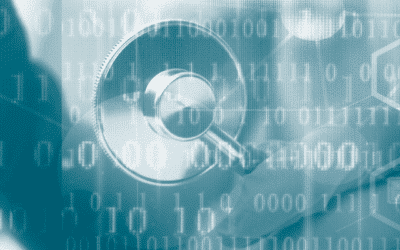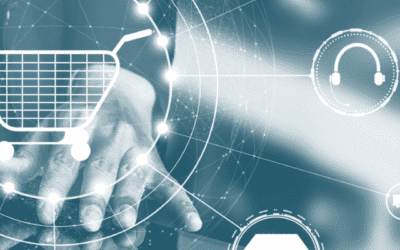Emerging Trends in Healthcare Technologies
Over the past few years, we have witnessed a significant development in healthcare technologies—from biomedical technologies to drug development. After all, it’s no surprise that, of all the industries that the pandemic has transformed, the healthcare industry has been the most affected one.
However, the pandemic was not the only challenge that organizations in this industry had to deal with. Healthcare organizations are also faced with labor shortages, inefficient processes that consume a lot of time and resources, medical errors that result from manual processes, and a constant need for virtual care.
Fortunately, many companies have begun to understand the importance of integrating technology into their processes. This has allowed them to offer better healthcare to their patients, optimize their workflows, and significantly improve accuracy. In fact, 78% of health executives agree that the need for innovation has never been higher.
Healthcare technologies will continue to develop even more in 2023 and beyond, so let’s take a look at some of the most important trends that are shaping this industry.
Artificial Intelligence for patient diagnosis
Artificial intelligence is making waves across several industries, reshaping how organizations operate. The healthcare industry is no exception, and AI brings great value to this field.
By leveraging this technology, organizations can automate many manual tasks and shift their focus on patient care. In fact, research shows that imaging staff believes that 25% of their work could be automated. Artificial intelligence can accurately process computed tomography scans at an unprecedented speed, detecting several conditions, including pneumonia.
Furthermore, AI also introduced online diagnosis through chatbots that can have human-like conversations with patients and offer them medical diagnostics and advice based on their symptoms. The main advantage of this technology is that it offers 24/7 support so patients can reach out when human medical assistants are unavailable.
Telehealth
Telehealth has become an important area of healthcare technologies. The pandemic has taught that many activities can be performed remotely. As a result, many consultations are now taking place online, and healthcare technologies have also enabled remote patient monitoring. In Germany, 90% of general practitioners are connected to the German digital healthcare system. Furthermore, German health apps reached a high of 2.4 million downloads per quarter.
When it comes to remote patient monitoring, there are many technologies involved. Organizations have access to several tools—web-based and mobile apps—where patients can upload information to devices that measure and transmit data, such as blood pressure. Plus, more and more people are using wearable devices that can monitor data like heart rate, blood glucose, physical activity, and sleep patterns.
Privacy and security
While the advancement of technology has brought significant improvements to the business world, there is also a price to pay for it. One of the top concerns of today’s digital environment is the increasing number of security breaches. Cyberattacks are more sophisticated than ever before, and hackers are taking advantage of any vulnerability organizations might have. When organizations become victims of data breaches, it costs them millions to recover. In Germany, the average cost of a data breach is $4.45 million.
As a result, protecting patient data has become a top priority for most companies in the healthcare industry. Organizations can opt for different software solutions that detect and prevent different types of cyberattacks, including ransomware. These solutions are meant to monitor the activity, detect any type of anomaly, and block malware from corrupting sensitive data.
Clinical automation
Biomedical labs also have to face their set of challenges, from the risks of human errors to time-consuming tasks that require manual effort. Fortunately, clinical automation is taking the field of biomedical testing to the next level.
Lab automation is a game-changer for the industry, as it presents numerous benefits, both in terms of speed and quality. Advanced clinical automation software can significantly reduce the number of manual and repetitive tasks and improve the accuracy of results. Other advantages include the possibility to trace and compare results from different time periods, the speed at which results are interpreted, and the capability of reproducing experiments.
Choosing the right technology partner
Healthcare technologies have seen substantial growth in the past few years, and keeping up with the latest trends in this industry has become crucial for improving patient care and optimizing processes.
When it comes to implementing a custom software solution that can meet your specific needs, choosing the right technology partner is a critical step. At Berg Software, we have collaborated with several international clients from the healthcare industry, helping them improve their workflows and provide better service to their clients through custom software development.
If you are interested in creating the perfect solution for your organization, our team of experts can help you turn your ideas into software. Reach out today and find out how we can support your business.
Check out some of our previous Biomedical Software Engineering projects_
Clinical Automation Software for Biomedical Labs
Advanced clinical automation module for biomedical labs that optimizes workflows. It can be customized according to clients’ specific needs.
Latest insights _
SAP Promotion management for retail applications
Comprehensive solution to create retail offers and prepare them for advertising. It supports several business areas (Advertising, Marketing, Merchandising, Administration).
SAP Retail assortment planning for retail applications
Comprehensive solution for purchase order recommendations in the SAP ERP, that adapts to seasonal and non-seasonal merchandise. Detailed breakdowns: styles, colors, sizes for fashion items; and KPU-s for non-fashion.
Service delivery management application / Fortune 500 Co.
A Java-based Enterprise Web Application with its own open source frameworks. It enables end-to-end management of service delivery for a Fortune 500 company.




